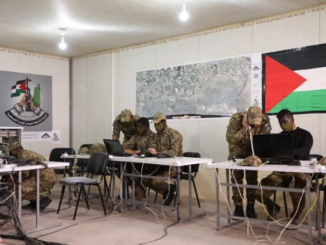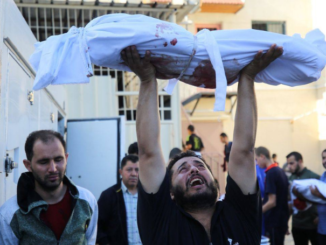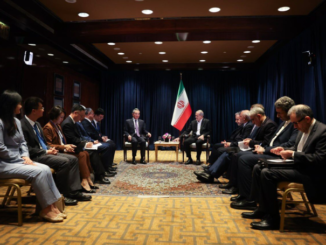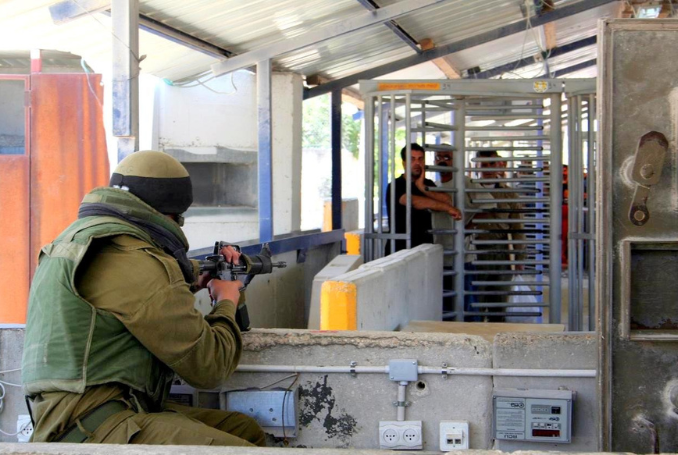
Looking at the map of the Israeli military checkpoints, one can see that their true aim is not to guarantee ‘security’ but rather to cut off and isolate Palestinian cities, villages and towns.
Every day, Ahmed Daraghmeh has to travel from his city of Tubas, in the northern West Bank, to reach the city of Ramallah, where he works.
When he started working in an engineering office, four years ago, Daraghmeh was able to move around almost normally. Two years ago, however, Israel launched a massive campaign against Palestinian Resistance groups in the northern West Bank and set up many military checkpoints in an attempt to control the territory.
The trip, which used to take no more than an hour, now takes him more than five hours, to the point that he is now looking for another job or for a room to rent in Ramallah.
The five-hour trip could become even longer, depending on the mood of the Israeli soldiers who are deployed at hundreds of military checkpoints and control the passage and movements of tens of thousands of Palestinians throughout the West Bank.
“In order to avoid military checkpoints, we began taking alternative roads, including dirt roads, but even there, it is not safe,” Daraghmeh told The Palestine Chronicle.
“Israeli soldiers sometimes chase us and bulldozers close the alternative roads with dirt barriers to prevent us from using them. This situation has become unbearable.”
Shocking Numbers
At the beginning of 2023, the United Nations Office for the Coordination of Humanitarian Affairs (OCHA) documented the existence of ‘565 obstacles’ to movement in the West Bank, including East Jerusalem.
These obstacles include 49 permanent checkpoints, 134 non-permanent checkpoints, manned by Israeli soldiers or private security companies, 304 road barricades, dirt barriers, and road gates, along with 73 dirt walls, trenches, and more.
According to OCHA estimates, “there are 642 physical obstacles, which together constitute an increase of approximately 8% compared to the 593 obstacles recorded in the last closure survey that we conducted at the beginning of 2020”.
The situation became even more difficult after the start of the Israeli aggression on the Gaza Strip, as the number of military checkpoints doubled and iron gates were installed at the entrances to most villages, towns, and camps.
The barriers separating Palestinian cities and communities also increased, and Israel practiced policies of restricting movement and harassing Palestinians.
For example, passing through the so-called Container checkpoint, which separates the southern West Bank from its center, has become even more challenging. The checkpoint is closed for long hours, leading to stifling traffic congestion.
‘Buying Our Own Stolen Water’ – Scorching Summer Awaits Palestinians in the West Bank
The Prison Village
Looking at the map of the Israeli military checkpoints, one can see that their true aim is not to guarantee ‘security’ but rather to cut off and isolate Palestinian cities, villages and towns.
Therefore, dozens of towns and villages became isolated residential communities. Among them is the town of Beit Iksa, northwest of Jerusalem.
The Israeli army set up a military checkpoint at the entrance of the town, which impedes the movement of its residents.
Horror on the Road to Gaza – Why Jewish Settlers Attack Palestinian Trucks
The mayor of Beit Iksa, Murad Zayed, told the Palestine Chronicle that the town is now completely surrounded by the checkpoint, which includes a gate that the soldiers open and close whenever they want.
On July 6, a group of high school students was on their way to the nearby town of Biddu to take one of their final exams, but the soldiers completely closed the checkpoint and prevented them from passing.
“The students became extremely stressed and frustrated, so we had to transport them via an alternative route that crossed another much further away checkpoint,” Zayed told us.
“Instead of five minutes, it took an hour and a half and when we arrived, they were in a very bad psychological state,” he added.
‘Graves for the Living’ – What We Known about Israel’s Secret Prisons for Gazans
Palestinians who are not residents of Beit Iksa are prohibited from entering it except through prior coordination with the Israeli army, and for a very urgent reason.
The mayor explained that this checkpoint is a major obstacle for the residents, as the village feels like one large prison. Patients are obstructed from reaching hospitals and some pregnant women were forced to give birth at the checkpoint because Israeli soldiers prevented them from crossing with no valid reasons.
“This barrier suffocates us, cuts off our communication with the world, and completely hinders our lives,” the mayor said.
(The Palestine Chronicle)
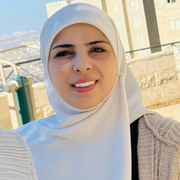
– Fayha’ Shalash is a Ramallah-based Palestinian journalist. She graduated from Birzeit University in 2008 and she has been working as a reporter and broadcaster ever since. Her articles appeared in several online publications. She contributed this article to The Palestine Chronicle.

